Summary
Ever wondered why your belly and bedtime seem to be buddies? Well, it turns out there’s a fascinating friendship between your gut health and sleep. In simple terms, the way your tummy feels and what happens when you close your eyes for the night are more connected than you might think. Let’s dive into the world of belly buddies and sweet dreams!
I work in a Sleep Lab and I see the importance of your sleeping habits and how dramatically it can affect your health. Getting in to healthy night time routines is crucial. Keep reading for below for more information on sleep.
Check out these amazing Sleeping Aid Headbands below
 | Type | Benefits |
|---|---|---|
| MUSICOSY | Sleep Headphones Bluetooth Sports | * Great for working out * Excellent for Sleep * Can be used for Yoga |
| LC-DOLIDA | 3D Eye Mask for Sleeping Mask | * Bluetooth sleep headphones * Great for meditation and yoga * Can be used for Yoga |
| MUSICOSY | Sleeping Workout Running Insomnia | * Lightweight and easy to transport * Great for working out * Excellent for Sleep * Can be used for Yoga |
| MUSICOSY | Built-in Speakers Microphone | * Quick pairing with smartphones * Stay connected even while sleeping * Advanced Bluetooth technology * Hands-free calling |
| ACOUSTICSHEEP | Headphones for Sleep | * Soft, Machine Washable Fabric * It doubles as an eye mask * Engineered & Designed for Comfort * Natural Sleep Aid Created By A Doctor |

The Microscopic Heroes in Your Belly
Imagine your belly as a tiny universe bustling with life – and we’re talking about microscopic life forms called bacteria. These bacteria are like little heroes that live in your digestive system, helping you digest food, make nutrients, and even protect you from bad guys. Together, they form what scientists call the “gut microbiome,” and they play a big role in how well you sleep.
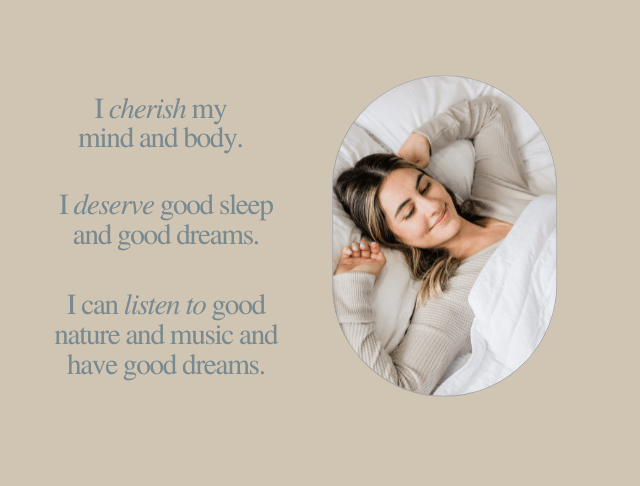
The Sleepy Hormone Factory
Now, let’s talk about serotonin – a fancy name for the “feel-good” hormone. It’s the superstar behind your happy moments, and guess where it’s made? Yep, you got it – in your belly! But why should we care about serotonin in our tummy? Well, because it’s like a magical ingredient that turns into melatonin, the sleepy hormone. And melatonin is the one that tells your body it’s time to hit the hay.
Chatting Between Belly and Brain:
Ever heard of best friends who finish each other’s sentences? Well, your belly and your brain do something similar through a cool system called the “gut-brain axis.” It’s like a secret chat line connecting the two. Your belly has a bunch of little messengers (neurons) sending notes to your brain, and vice versa. This constant chit-chat helps your body figure out when it’s time to sleep and when it’s time to wake up.
The Battle Against Belly Inflammation
Picture your belly as a superhero fortress, defending against invaders. But sometimes, things don’t go as planned, and your belly faces inflammation – a sort of troublemaker causing chaos. Inflammation in your gut doesn’t just affect your belly; it can also mess with your sleep. The bad news is that it can make falling asleep a bit like trying to sleep on a bumpy rollercoaster. The good news? Taking care of your belly can help calm things down and make your sleep smoother.
Probiotics: The Super Friends for Your Belly
Now, let’s talk about probiotics – the superheroes of the gut world. These are the good bacteria that make sure your belly stays in tip-top shape. You can find them in foods like yoghurt, kefir, and sauerkraut. When you invite these friendly bacteria to your belly party, they help keep the bad guys in check, reducing inflammation and promoting a peaceful environment for sleep.
Eating Right for a Happy Belly and Snoozy Nights
Okay, enough with the science – let’s get practical. What can you do to keep your belly and sleep happily ever after?
- Fiber Friends: Your belly loves fiber. It’s like giving your gut heroes a feast. Load up on fruits, veggies, and whole grains to keep your gut bacteria happy and your digestion smooth.
- Stay Hydrated: Just like a garden needs water, your gut needs it too. Drinking enough water helps your digestive system work its magic and keeps everything flowing smoothly.
- Playtime for Your Belly: Exercise isn’t just for your muscles; it’s for your gut too! Moving your body helps your gut bacteria thrive, and it also makes you feel more tired when bedtime rolls around.
- Chill Out: Stress is like the grumpy neighbor who doesn’t let you sleep. Try relaxing activities like reading, listening to music, or deep breathing to calm your mind and make your gut and brain happy.
- Probiotic Party: Consider adding probiotic-rich foods to your diet. Yogurt, kefir, and other fermented goodies are like VIP passes for the friendly bacteria to enter your belly bash.
So, there you have it – the cozy connection between your belly and sleep. Your gut is like the backstage manager, working hard to make sure everything runs smoothly so you can have a good night’s sleep. By treating your tummy well with a healthy diet, hydration, and some belly-friendly habits, you’re not just taking care of your digestion – you’re also giving yourself a better chance at sweet dreams. It’s a simple tale of how a happy belly can lead to snoozy nights, and who wouldn’t want that dreamy duo in their life? Sweet dreams, belly buddies!
Signs of Sleep Apnea
Excessive Daytime Sleepiness is when you feel very, very tired during the day. It’s not the normal kind of tiredness; it’s more like struggling to stay awake and focused when you should be alert and active. This feeling can come from sleep problems like sleep apnea, where your sleep gets interrupted during the night. Excessive daytime sleepiness can affect your daily life, making it hard to work, study, or enjoy activities.
How do you get tested for Sleep Apnea?
- Doctor’s Evaluation: Start by talking to your primary care doctor about your sleep problems and symptoms. They will ask about your sleep patterns, health history, and may conduct a physical examination.
- Sleep Study: If sleep apnea is suspected, your doctor may recommend a sleep study. This can be done either at a sleep center (in-lab polysomnography) or at home (home sleep apnea test). The sleep study records your vital signs, brain activity, breathing patterns, and more while you sleep.
- In-Lab Polysomnography: If you have an in-lab study, you’ll spend a night at a sleep center where professionals monitor your sleep. They’ll attach sensors to your body to track various functions.
- Home Sleep Apnea Test: If a home test is prescribed, you’ll receive a kit to use at home, which typically includes sensors to measure your breathing and oxygen levels while you sleep.
- Results and Diagnosis: Once the sleep study is complete, a sleep specialist will review the data to determine if you have sleep apnea. They’ll provide a diagnosis and recommend treatment options if necessary.
- Treatment Options: If diagnosed with sleep apnea, your doctor will discuss treatment options, which may include lifestyle changes, the use of a continuous positive airway pressure (CPAP) machine, oral appliances, or surgery, depending on the severity of your condition.
What happens when Sleep Apnea is left untreated?
When sleep apnea is left untreated, it can have serious and far-reaching consequences for both physical health and overall well-being. The repeated interruptions in breathing during sleep lead to chronic sleep deprivation, resulting in daytime fatigue and diminished cognitive function, which can affect work performance and safety. Untreated sleep apnea significantly increases the risk of cardiovascular issues such as high blood pressure, irregular heart rhythms, and an elevated likelihood of heart attacks and strokes.
Mood disturbances, including irritability and an increased susceptibility to mood disorders like depression and anxiety, are common. Untreated sleep apnea can also worsen existing health conditions and reduce overall quality of life, impacting personal relationships and emotional well-being. In severe cases, it may even shorten lifespan due to the heightened risk of life-threatening health events. Seeking evaluation and appropriate treatment is crucial for mitigating these risks and improving one’s health and quality of life.
What to expect from a Sleep Apnea Study
A sleep study, also known as a polysomnography, is a test to diagnose sleep disorders like sleep apnea. Here’s what you can expect:
Remember, a sleep study is a painless process, and its results can help improve your sleep quality and overall health if sleep apnea or other sleep disorders are detected.
Understanding the Cost of CPAP Machines for Sleep Apnea
A CPAP machine, which helps people with sleep apnea breathe better during sleep, can cost around $300 to $800 or more. The price can vary depending on the features and brand you choose. You might also need to consider the cost of accessories like masks and hoses, which can add to the overall expense. It’s a good idea to check with your insurance or healthcare provider, as they might help cover some of the costs. Remember, investing in better sleep and health is worth it.
The Advantages of Using a CPAP machine for better Sleep and Health
- Better Breathing: It helps you breathe better during sleep by keeping your airway open. This means you get more oxygen, so you sleep better and wake up more refreshed.
- Less Snoring: It often reduces or stops loud snoring, which can be a relief for you and your sleeping partner.
- Improved Health: Treating sleep apnea with a CPAP can lower the risk of heart problems, high blood pressure, and other health issues.
- Increased Energy: With better sleep, you’ll have more energy during the day to enjoy life and do your daily tasks.
Considerations and Drawbacks of Using a CPAP Machine for Sleep Apnea
Adjustment Period: Some people find it hard to get used to wearing the mask and having air pressure blowing into their nose or mouth. Maintenance: CPAP machines need regular cleaning and upkeep to work effectively.Mask Fit: Finding the right mask that fits comfortably can be a bit tricky, and it might take some trial and error.Cost: CPAP machines and accessories can be expensive, but many insurance plans can help cover the cost.
In the end, while there might be some challenges, a CPAP machine can make a big difference in your sleep and overall health if you have sleep apnea. It’s a helpful tool for many people who use it regularly.
Are there Alternatives to a CPAP machine?
Yes, there are alternative treatments and strategies for managing sleep apnea if you find that using a CPAP machine is not suitable for you or if you’re looking for alternatives. Some of these alternatives include:
- Oral Appliances: Dentists can create custom oral appliances that help reposition the jaw and tongue to keep the airway open. These are particularly useful for mild to moderate sleep apnea.
- Lifestyle Changes: Sometimes, making changes in your lifestyle can significantly improve sleep apnea. This may include losing weight, avoiding alcohol and sedatives, and changing sleep positions.
- Positional Therapy: For those with positional sleep apnea (meaning it mostly happens when sleeping in a certain position), positional therapy, like wearing devices to encourage sleeping on your side, can be beneficial.
- Surgery: In some cases, surgery may be an option to remove excess tissue or repair structural issues in the airway. It’s usually considered when other treatments have failed.
- Nasal EPAP Devices: These are small, disposable devices that fit over your nostrils and use your own breathing to create positive pressure, keeping the airway open.
- Adaptive Servo-Ventilation (ASV): ASV machines are more advanced than CPAP and adjust airflow based on your breathing patterns.
- Bilevel Positive Airway Pressure (BiPAP): Similar to CPAP but provides different air pressure for inhalation and exhalation, which can be more comfortable for some.
Choosing the Right Mask for Your Needs
Choosing the right mask for your CPAP machine is a crucial step in ensuring a successful and comfortable treatment for sleep apnea. There are several types of CPAP masks (Full Face) available, each with its unique features. To make the best choice, consider your comfort preferences, sleeping habits, and facial structure. If you tend to breathe through your nose, a nasal mask or nasal pillows may be suitable.
For those who breathe through their mouth, a full-face mask is a better option. It’s essential to try on different mask styles and sizes to find the one that fits securely without causing discomfort or air leaks. Your healthcare provider or a CPAP specialist can offer valuable guidance in selecting the most appropriate mask for your individual needs, helping you embark on your journey towards more restful and healthier sleep.
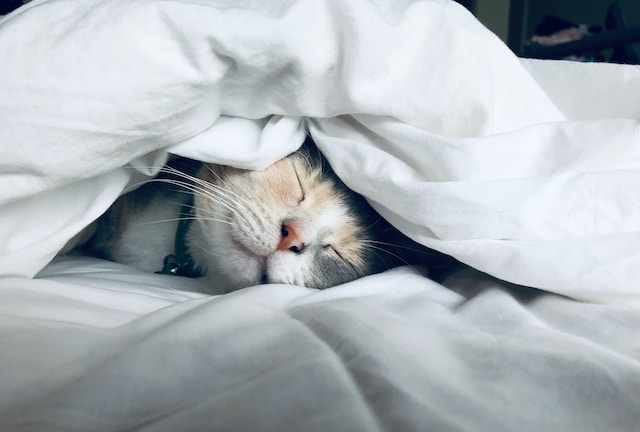
Lifestyle and Sleep Apnea: Simple Changes for Better Sleep
Insomnia Management: When you can’t sleep well, there are things you can do to help. One way is to make changes in your daily routine, like having a regular bedtime and not looking at screens before sleep. Sometimes, talking to a special therapist who knows about sleep, called a cognitive-behavioral therapist, can be helpful. In some cases, a doctor might suggest pills to help you sleep, either ones you need a prescription for or those you can buy without one.
Sleep Hygiene: Good sleep habits, also known as sleep hygiene, can make a big difference in your sleep. It’s about creating a cozy sleep environment, having a set bedtime routine, and keeping your bedroom quiet, dark, and at a comfortable temperature.
Circadian Rhythms: Our bodies have a sort of inner clock called circadian rhythms. They decide when we feel awake and sleepy. Knowing how they work can help you sleep better and feel more balanced.
Narcolepsy: Narcolepsy is a rare condition where people feel extremely tired during the day and can suddenly fall asleep. It’s important to be aware of it, and if you think you have it, talking to a doctor is a good step.
Restless Legs Syndrome (RLS): Restless Legs Syndrome is when you feel like you have to move your legs a lot, especially at night. There are treatments that can help you sleep better if you have this condition.
Shift Work and Sleep: Working late at night or irregular hours can mess up your sleep. If you’re a shift worker, you can learn how to keep a good sleep schedule despite your job.
Children’s Sleep Issues: Kids sometimes have sleep problems, like waking up scared at night. Parents can learn how to help their children sleep better.
Aging and Sleep: As we get older, our sleep patterns can change. Older adults may have trouble falling asleep or waking up too early. Learning about these changes can help improve sleep in older age.
Caffeine and Sleep: Coffee and other drinks with caffeine can keep you awake. It’s good to know when it’s best to have caffeine and when to avoid it for a good night’s sleep.
Blue Light and Sleep: Light from screens, called blue light, can make it hard to fall asleep. There are ways to reduce the effects of blue light on your sleep.
Sleep and Chronic Health Conditions: Conditions like diabetes and heart disease are linked to sleep. Getting better sleep can help manage these health problems.
The Path Forward for Managing Sleep Apnea
Sleep apnea is a sleep problem where a person stops breathing for short moments during sleep. This can be risky for your health because it can lead to problems like heart disease and tiredness. But the good news is there are ways to treat it, like using a machine to help you breathe or making lifestyle changes. If you or someone you know has sleep apnea, it’s important to get help from a doctor to sleep better and stay healthy.
Mouth exercises for sleep apnea are like special workouts for your mouth and throat muscles. These exercises can be helpful if you have sleep apnea, a condition where you stop breathing during sleep. They aim to make these muscles stronger, which can help keep your airway open and reduce sleep apnea episodes. Simple exercises like sticking out your tongue, pushing it against the roof of your mouth, or moving it around can make a difference. But remember, these exercises may take time to work, and it’s essential to talk to a doctor for the best advice and treatments for sleep apnea.
Mindfulness and meditation is a good way to create healthy sleep patterns.
This post may contain affiliate links which means I may receive a commission for purchases made through links. I will only recommend products that I have personally used. Learn more on my privacy policy page.

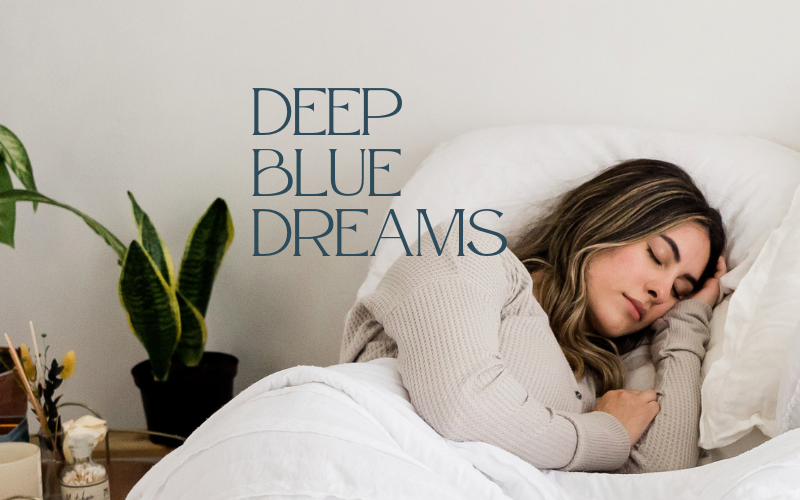

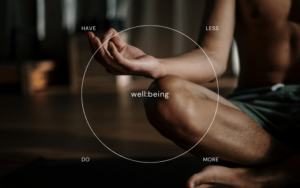
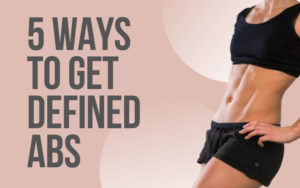
Pingback: Best Botox Breakdown: Men and Women's Guide to Facial Rejuvenation - The Media Landscape
Pingback: Gut Health 2024 The Media Landscape